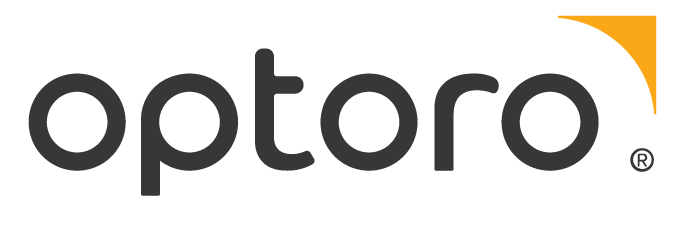PolyAPI > Solutions > Case Studies > Optoro Case Study
Optoro Accelerates New Retail Partner Integration by 4X with PolyAPI

Optoro Accelerates New Retail Partner Integration by 4X with PolyAPI
Optoro is a leading returns management platform for retailers and 3PLs, serving clients such as Ralph Lauren, Gap, and more. When a new high-priority client with complex integration requirements entered their pipeline, they estimated the buildout would take four to six months to complete, which prompted them to search for a better way to develop and launch integrations.
They needed to enable internal team members to onboard new clients faster, reduce reliance on external contractors, and secure a cost structure that would allow savings to be passed on to their clients, which led them to replace the legacy middleware platform they were using with PolyAPI’s modern middleware platform.
By adopting Poly, Optoro dramatically increased the throughput of their professional services team and reduced technical lift for its clients. “Poly is so easy to use and update, it aligns really well with our needs. The reusable functions, dynamic variable injection, auto-generated SDKs, and AI assistant have ramped up our development pace, making it easier to onboard and implement new customers,” says Jonathan James, SVP of Professional Services at Optoro. The implementation of PolyAPI resulted in 4x acceleration in time to market.
Challenge
Optoro’s integration architecture is complex because it relies on many different systems across various retailers with different procedures. Retailers use multiple interconnected and highly customized systems ranging from ERP, OMS, WMS, and POS to e-commerce and accounting to effectively run their operations. These systems do not always easily integrate directly, which necessitates a middleware platform that can act as an abstraction layer. “The sales process is an extremely important time to determine the correct solution design, technical architecture, and integration model to ensure that we deliver exceptional value to our customers. By having a flexible and powerful integration layer, we can improve quality and time to value,” says Casey Chroust, Chief Operating Officer at Optoro.
To streamline client onboarding, James began updating their approach to integrations by adopting a popular legacy middleware platform in 2022, which helped them successfully build new flows and manage them on a centralized platform. This approach did help speed customer onboarding, but after a few years, it started to become a bottleneck. “Our team spent a lot of time becoming proficient in the old system, but it just wasn’t very easy to learn and use. We were constantly putting team members through training so that they could self-sufficiently push projects forward. And even with the training, we found ourselves frequently engaging SIs for help. These engagements add friction and tens of thousands of dollars of cost to an implementation.” James mentioned. The legacy middleware platform they used requires specialized experience in a proprietary programming language, which ultimately shrinks the potential talent pool for good developers and increases the need for SI support. The Optoro team felt the inefficiency of working in a proprietary language, spending more time than anticipated into the buildout of simple flows and continually diverting attention to training and support rather than customer-facing work.
When Optoro needed to open up new APIs, they would frequently be hit with overage charges based on their usage. “We had to keep paying for more usage as we grew, which in addition to the costs of the development itself, became expensive,” says James. “Before I knew about Poly, this other platform was a good option for us, but over time it just didn’t scale well with the needs of our business,” he continued.
James and the team at Optoro knew all too well that all the work and skill they developed would be lost if they ever decided to migrate away. With the legacy platform charging for each additional core, API, and capability, it became clear that continued growth would come at an unsustainable cost and risk undermining the seamless experience Optoro aimed to deliver to its own customers. A course correction was needed. “We realized that all the work and training was just us digging deeper into an unsustainably expensive approach, and that it was going to hurt our ability to provide an affordable solution to our customers,” says James.
Solution
Optoro selected PolyAPI to replace the legacy platform and accelerate its integration strategy. PolyAPI offered a faster, more flexible alternative that aligned with Optoro’s goals of accelerating client onboarding, improving customer experience, and reducing platform costs so they could pass along savings to their customers.
The platform helped Optoro accelerate customer onboarding with:
- Native Language Empowerment: Poly enabled Optoro’s developers to code in JavaScript, the native language they are most comfortable with, providing ease-of-use and rapid onboarding to a larger labor pool. Poly supports development in multiple native languages including TypeScript, Python, and JavaScript.
- Easy Cataloging of APIs & Native Libraries: Adding new functions to the catalog via OAS and Postman was a seamless way of cataloging information about their customer’s systems while generated SDKs made it easy to develop against those systems. Users can ask the Poly AI assistant questions and get tailored answers based on their libraries and use cases.
- Scalable Architecture: Poly’s serverless architecture powered by Kubernetes and KNative make it so Optoro’s team did not have to worry about scalability and costs the way they did with the legacy platform’s model, allowing them to focus on delivering exceptional value to their clients. Poly is built to scale with Optoro’s use cases, being highly customizable and easy to update after deployment.
- Transformational Cost Structure: Poly enabled Optoro to drive costs down for their customers with 3 main levers: 1) Faster development with the same labor pool. 2) Lower platform license costs 3) No more reliance on expensive, specialized SIs. The lower, more predictable pricing offered by Poly gave Optoro confidence around their costs so that they could provide fixed bids for implementations or include integration costs into their standard contracts.
By adopting Poly, Optoro transitioned to a more suitable system that aligned with their goal of rapidly onboarding leading global retailers and brands. As Optoro continues to invest in their integration architecture on Poly, they own what they build so even if they choose to migrate off in the future, they will retain the work that they’ve created.
Implementation
Optoro began its transition to PolyAPI with a focused pilot, running in parallel to the legacy platform, to validate their assumptions and ensure all use cases could be supported. Optoro took the driver’s seat and Poly helped by providing solutions for more advanced concepts such as how to stream very large files from SFTP, chunk them up, and process the chunks in parallel. Working alongside Poly’s team and corresponding frequently in a private Slack channel, they quickly stood up their first use case in production and then successfully onboarded their first batch retail customers.
Based on the success of the pilot, Optoro expanded usage to additional customers while continuing to run Poly and the legacy platform in parallel. This phased rollout allowed for real-world testing, risk mitigation, and iterative refinement without disruption to ongoing operations. Throughout the process, Poly provided hands-on support, collaborating with Optoro’s teams to guide design decisions, troubleshoot edge cases, and ensure a seamless transition.
Once confident in their decision to move to Poly, Optoro completed a full cutover within six months. The migration was smooth, predictable, and executed without disruption to customers. “Poly has been an incredible partner for us. We are excited by what we’ve already accomplished with the platform and see this as a critical partnership for our business going forward”, says James.
Results
Optoro delivered its highest-priority integration in just six weeks, far outperforming original estimates and eliminating the need for external consultants. Optoro met a critical customer demand and built a more flexible digital foundation for the future concurrently. “The agility and efficiency provided by PolyAPI were beyond our expectations,” shared James.
By moving to PolyAPI, Optoro reduced both licensing and development costs while being able to adapt more easily to client requirements. Flows that previously drove up costs and took weeks to deploy now take a few hours using Poly and Optoro’s in-house team. They can now safely build, modify, and scale integrations in production without worrying about breaking things. “A last-minute requirement was added by our client when implementing our first project in Poly. Previously, that would have slowed down the whole project to the point of risking the go-live date. With Poly, we were able to expand the scope and stay on track without sacrificing time,” James stated.
With a growing pipeline of retail customers, Optoro’s professional services team is feeling more confident than ever in supporting their business’s growth. “Poly will continue to play an important role in our tech stack as we make retail returns more seamless for the world’s leading brands,” stated Casey Chroust, Optoro’s COO. Poly is proud to partner with Optoro to help create outstanding experiences for customers and to be an integral part of the circular retail economy they are enabling.

About Optoro
Optoro’s purpose-built returns platform optimizes the entire lifecycle of a return — from initiation and repurchase to receiving, restock, resale, and recommerce — transforming what’s traditionally a margin-crusher into a revenue driver. Their platform helps retailers recover more value, operate more sustainably, and deliver a seamless, customer-friendly returns experience..
Industry: Retail
Location: Global
Customer Since: 2024

“The agility and efficiency provided by Poly was beyond our expectations.”
Jonathon James
SVP Professional Services, Optoro